Sidharth Vishwanath On Making Sorgavaasal: 'No Crime Ought To Be Glorified'
The debut director talks about crafting his first film, Sorgavaasal, its politics and belief system and the choices he exercised.
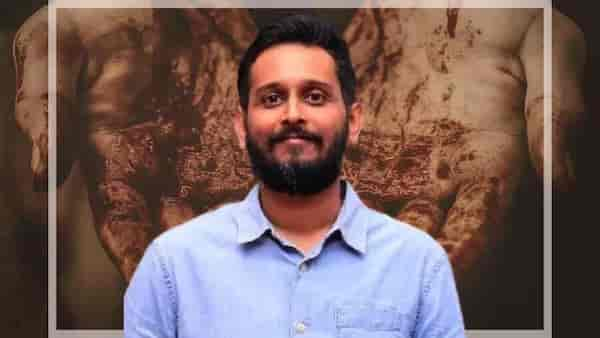
Last Updated: 02.22 PM, Dec 24, 2024
SORGAVAASAL (which means doorway to heaven) did not exactly have an easy time in the initial days of its release — Cyclone Fengal ensured that people did not exactly line up in theatres for the story of Parthi, an innocent man who lands in prison, the people he meets there, and what follows. But, those that did in areas where it was bright and sunny turned the film’s marketers. They spoke about a serious film that surprised them, because it had as its lead an actor and director and former RJ known for his levity, it got its politics and gaze right, and, most importantly, it respected the audience’s intelligence.
Through word of mouth, the love for Sorgavaasal spread, and suddenly everyone was speaking of Sidharth Viswanath, whose debut it was. The film is still in theatres, and drops on Netflix on December 27.
Sorgavaasal is based on the 1999 Chennai prison riots where 10 people were shot dead and a jail official burnt alive. Among the many things being spoken about the film is how the director got the gaze right, and how he looks at his subjects with empathy. There’s a poignant queer angle involving a young inmate Rangu, and her interactions with Parthi are gold. For a fleeting minute, the dialogues allow Parthi to take on a saviour complex before he realises that all of them need saving inside the prison walls.
The young director, who trained under Pa Ranjith, speaks about his creative choices, his casting, why he chose to narrate the film the way he did, and the importance of knowing history. Edited excerpts below:
Let’s begin with the writing (co-written with Thamizh Praba and Ashwin Ravichandran) of the film. You don’t glamourise anyone or anything, don’t valorise anyone. You show us things and let us decide what we wish to feel for a character…
We were clear that the main character of the film is the prison. And, it is an institution that exists within society but is still on the outskirts. Its inhabitants are people we don’t associate with or aspire to be, due to various reasons.
And, what kind of characters would you find in jail? You might find hardcore criminals, but you’ll also find so many undertrials, innocent people from downtrodden families, wronged by the justice system. More than 75 per cent of those in prison are undertrials. (According to the National Crime Records Bureau, in 2022, undertrials made up 76 per cent of the total prison population).
And, hero Parthi is one such undertrial. There’s a thin line between showing their psychological reality and glorifying their crime. No crime ought to be glorified.
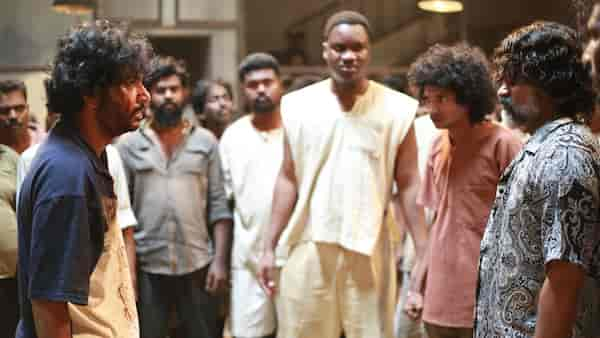
Your portrayal of those imprisoned was neutral. You did not take sides.
Yes, during my research, I realised that many crimes are emotional in nature. So, I was not really interested in their backstories, be it Siga (Selvaraghavan), Kendrick (Samuel Abiola Robinson) or Cooker (Balaji Sakthivel). I also did not focus on the backstories of the cops — be it prison official Kattabomman (Karunas) or SP Sunil (Sharaf U Dheen). I wanted you to see them in real-time, without focussing on their background.
I also wanted the audience to see that despite all the bravado, they were also mere pawns in the hands of politicians, ready to be disposed of when they wanted to turn over a new leaf. When they stop being useful, they get bumped off.
Do you remember where this clarity came from? What shaped your belief system and your politics?
I think, going to Delhi for my graduation helped. I studied BA Economics (Honours) at Hansraj, and that shaped my education and my political journey. It showed me things I had not noticed or not focussed on. It showed me how to approach anything from all sides and perspectives.
Today, a lot of youngsters believe in a borderless world. They are against authoritarianism. I think I subscribe to that view. I can never write or make a film glorifying any force — military, political or artistic. I have to show the other side, and give them agency. I cannot have a saviour complex. And, I think I picked that up from college.
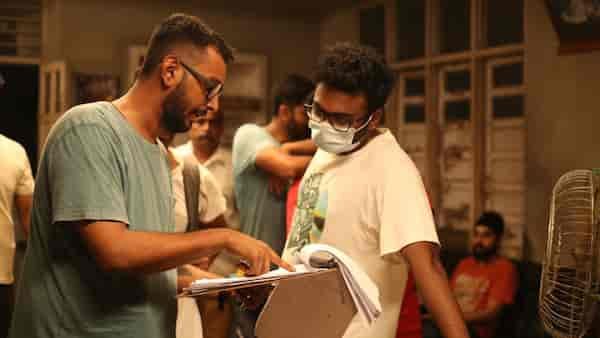
And then, you worked with Pa Ranjith...
I came fresh from college and worked with Ranjith for six years. I assisted on Kaala (2018), and being with the team was great learning. I was raised in a certain way, and then I was in a place where I was gently guided in a good way, on how I could be better.
I learnt about oppressed, minority communities, and I was surrounded by people who all believed that one should have a voice that is not detrimental to anyone oppressed. Art is what we want to consume, and it can always be made a better place.
I was very happy when Ranjith liked the film.
One of the reasons the film worked with the sensitive audience is the gaze. It’s gentle, never in your face…
In movies, sexual abuse is almost always used as a plot-moving technique. And, I noticed that it disturbed me, yes, but that it was terrible for my female friends to view violence as content. The camera angles made them squirm. I did not want to do that. I wanted to show what happened, but not with the intention to titillate. I wanted my mother to see the film without being uncomfortable.
Luckily, I had producers (Siddharth Rao and Pallavi Singh) who understood my gaze and supported it till the end. There was no request to alter the politics in the film or the representation, or how I showed the political machinery. My hero, Balaji Sir did not question my judgment too.
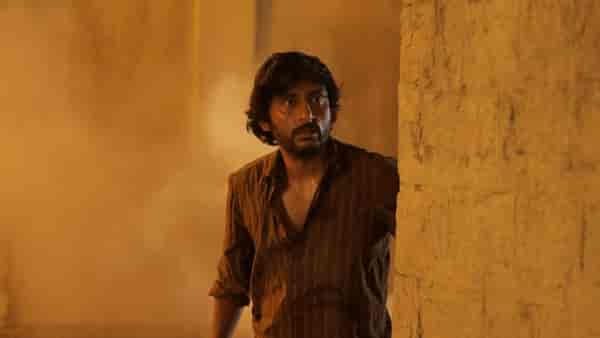
Speaking of Balaji, how did you visualise someone known for bringing the house down with laughter as Parthi?
Even when Balaji Sir was doing radio, I felt that he had a very clear political and social voice. I saw him as an intense person who felt strongly about things. Be it his work during the 2015 Chennai floods or his speech during the Jallikattu agitation, I felt he was an intense person who had chosen to communicate jovially. I felt that intensity could be channelled towards acting too.
Luckily, he was in a stage where he wanted to experiment with his acting roles too. He was willing to mould himself differently, and that made my job easier. Because he came in, the scale of the film changed, and I am forever thankful for that.
When did you first hear of the Chennai jail riot?
I think it was the last year of college, say 2016. The idea of a jail riot was fascinating from a creative point of view and when I began reading up, I realised something had happened in my own home town and I did not know about it.
I had no idea to make a movie then, but years later, during the pandemic, I explored that idea.
You’ve spoken about how, unlike many others, you come from a family that allowed you to watch movies and provided you access.
Very true. I was born in Kochi and raised in Chennai, and my parents were film aficionados who would go watch movies and take us too. I have very happy memories. I also studied well, and my dad introduced me to books at a very young age. We would have intense discussions about literature and mythology. I think this book-reading habit has brought me here. When you read, you tell a story better.
Do you think you’ve had a relatively easier path at the movies?
I definitely think so. I sustained very comfortably for eight years despite not earning a rupee. I might have been an outsider but my struggle was nothing compared to others. I got access because of my education. My struggle and the struggle of other outsiders is not the same. And therefore, I learnt early on to never take anything for granted.
I cannot discount my caste privilege. I cannot escape where I came from. But, Ranjith taught me to look at the world differently. That I can look at subaltern culture and narrate it with honesty. That being earnest and sincere matters.
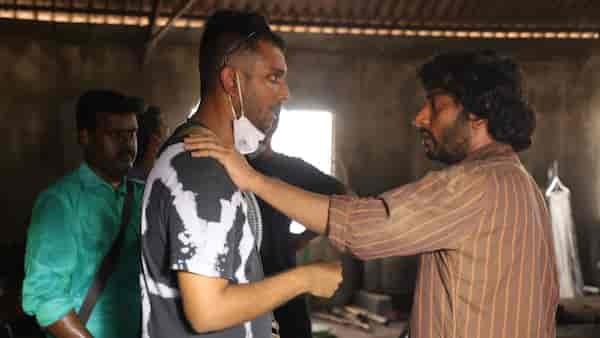
Speaking of characters, Kendrick, Siga, Sunil and Kattabomman, all come with layers. Towards the end, even Parthi seems to have shades to him.
Layering is something I have always liked in movies. Writing complex characters is interesting. It’s nice when something is not in your face, but as part of the subtext, and you figure things out at your pace, or during a second watch.
If you take Sorgavaasal, who is more grey? Kattabomman or Sunil? Why does Parthi do what he does? It all boils down to ego and control. Sunil comes wanting to control, and he does not know what he triggered. Siga is no saint, but he tries to change, and his words to Sunil that he’ll meet the same fate prove prophetic.
In some way, Kendrick reminded me of John Coffey from The Green Mile.
Possibly. Because, he is the one tender soul in this, who genuinely believes in reform, despite being in prison that does not allow it. He’s literally the light at the end of the dark tunnel. But, no one is really ready to accept that spirituality heals, that too from an affable black person. People are narrow-minded, and Sunil is no exception. He comes with a preoccupied opinion.
What’s your takeaway from your debut?
That a film will find its audience. That one should not glorify vulnerabilities in the system, but point them out. That holding one’s beliefs close to your heart helps you make a film that’s true to your conscience. And that validation from those who matter to you and who have helped in your growth, is a real high.

 Premium
Premium